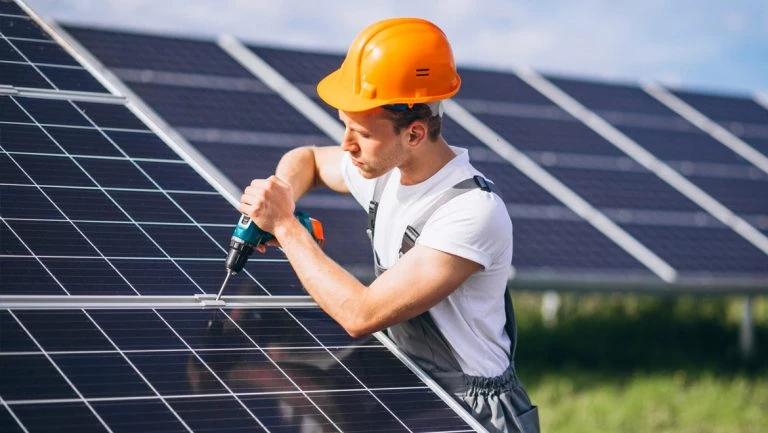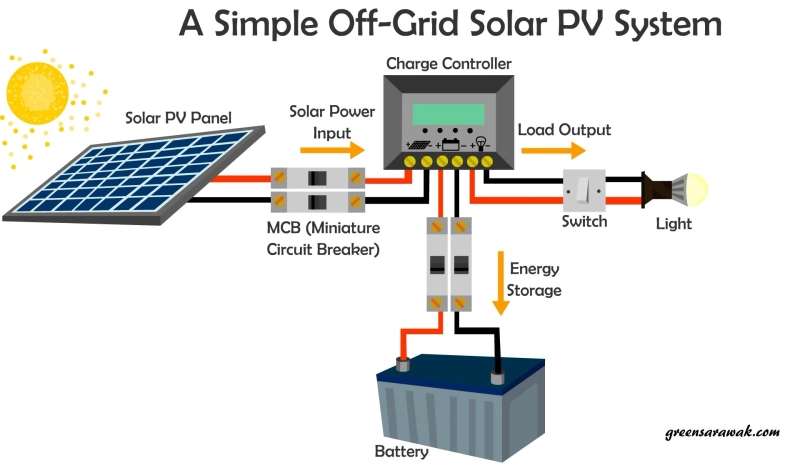In today\'s era of sustainable living and renewable energy, off-grid solar systems offer a compelling solution for achieving energy independence. This article explores the benefits, considerations, and practical guidance for implementing Off-grid Solar Systems in Loxahatchee FL.

Introduction to Off-Grid Solar Systems
Off-grid solar systems operate independently from the traditional electric grid, making them ideal for remote locations or areas where connecting to the grid is impractical or costly. These systems harness solar energy through photovoltaic (PV) panels, store excess energy in batteries, and often include backup generators for extended periods of low sunlight.
Benefits of Off-Grid Solar Systems
- Energy Independence: Off-grid systems free homeowners and businesses from reliance on centralized power grids, ensuring continuous access to electricity even during grid outages or disruptions.
- Cost Savings: By generating and storing their own electricity, users can significantly reduce or eliminate monthly utility bills, making off-grid systems a long-term cost-effective investment.
- Environmental Sustainability: Solar power is clean and renewable, contributing to reduced carbon emissions and environmental impact compared to fossil fuel-based energy sources.
Considerations Before Installing Off-Grid Solar Systems
- Location and Sunlight Availability: Assessing the site\'s solar potential is crucial. Florida\'s abundant sunlight makes it a favorable location for solar energy, but factors such as shading, orientation of panels, and local climate patterns must be considered.
- System Sizing and Energy Needs: Properly sizing the solar array and battery storage capacity is essential to meet daily energy demands. Factors like household size, energy usage patterns, and appliance efficiency should inform system design.
- Battery Storage and Backup Options: Batteries store excess energy generated during sunny periods for use during cloudy days or nighttime. Choosing high-quality batteries and considering backup power options like generators ensures reliable energy supply.
Designing an Off-Grid Solar System
- Solar Panels: Selecting efficient PV panels optimized for Florida\'s sunlight is crucial. Monocrystalline panels offer higher efficiency and durability, making them ideal for maximizing energy production in limited space.
- Inverters: Off-grid systems require inverters to convert DC electricity from solar panels and batteries into AC electricity usable by household appliances. Choosing Solar Inverter Solutions with high efficiency and reliability is essential for system performance.
- Battery Storage: Deep-cycle batteries designed for renewable energy applications store surplus electricity for later use. Lead-acid and lithium-ion batteries are common choices, each offering distinct advantages in terms of lifespan, capacity, and maintenance requirements.
Installation and Maintenance
- Professional Installation: Hiring certified solar installers ensures proper system installation, compliance with local codes, and eligibility for financial incentives or rebates available in Florida.
- Monitoring and Maintenance: Regular maintenance, such as cleaning panels and inspecting battery health, helps optimize system performance and prolong equipment lifespan. Monitoring systems allow users to track energy production and consumption in real-time.
Financial Incentives and Considerations
- Federal Tax Credits: Eligible homeowners and businesses can claim the Federal Investment Tax Credit (ITC), which offsets a significant portion of solar system installation costs.
- State and Local Incentives: Florida offers various incentives, such as sales tax exemptions on solar equipment and property tax exemptions for increased home value due to solar installations.
Conclusion
Off-grid solar systems represent a sustainable and reliable energy solution for homeowners and businesses in Florida seeking independence from traditional power grids. With careful planning, quality equipment selection, and professional installation, off-grid solar systems can provide long-term energy savings and environmental benefits. By embracing solar energy, Floridians can contribute to a cleaner, more resilient energy future while enjoying the freedom of self-sufficiency.
Final Thoughts
Investing in an off-grid solar system requires thorough consideration of energy needs, site conditions, and system components. Consulting with experienced solar professionals and staying informed about technological advancements and financial incentives will empower individuals and businesses in Florida to make informed decisions about their energy future.
Implementing off-grid solar systems not only reduces reliance on fossil fuels but also enhances energy security and sustainability. With ongoing advancements in solar technology and


